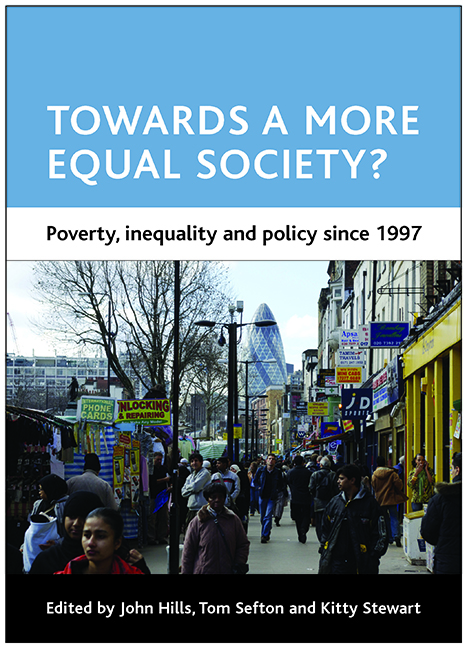eleven - Moving in the right direction? Public attitudes to poverty, inequality and redistribution
Published online by Cambridge University Press: 22 January 2022
Summary
Introduction
New Labour committed itself to eliminating child poverty mid-way through its first term and made significant progress towards this goal during its first two terms (see Chapters Two and Three). However, there is a growing body of opinion that more radical measures will be needed to make further progress in reducing poverty and that this in turn will require much stronger public support (Bamfield, 2005; Fabian Society, 2006a; Rutherford and Shah, 2006). According to Piachaud (2001, p 448), for example, ‘there are limits to redistribution by stealth, and a clear, explicit recognition of the need for more redistribution, as well as public explanation and defence of it, are necessary if child poverty is to be further reduced’. This has been accompanied by a growing interest in understanding public attitudes to poverty, inequality and redistribution (Castell and Thompson, 2007; Orton and Rowlingson, 2007).
In this chapter, we attempt to pull together the evidence on attitudes to social justice and the beliefs and values that underpin them. How has public opinion changed since New Labour came to power and, in particular, is the British public more or less progressive in its views now than in 1997? Our analysis is based on a combination of quantitative and qualitative sources, including national surveys, opinion polls and focus groups. Any conclusions must be qualified by the recognition that public attitudes towards these issues are complex, often ambiguous and sometimes contradictory (Orton and Rowlingson, 2007).
Changing perceptions of the Labour Party
Consciously or not, the way government talks about social problems and presents its policies can over time shape the way people think about these issues. Before investigating people's own attitudes to social justice, we look briefly at how their perceptions of the Labour Party have altered over the last decade or more as this sets the context for the discussion that follows.
Even before it came to power, New Labour was keen to drop the Labour Party's traditional commitment to explicit redistribution and to shed its image as the ‘big tax and spend party’, which many felt was responsible for the party losing the 1992 election. There is little doubt that New Labour has been very successful in changing people's perceptions of the party.
- Type
- Chapter
- Information
- Towards a More Equal Society?Poverty, Inequality and Policy since 1997, pp. 223 - 244Publisher: Bristol University PressPrint publication year: 2009
- 1
- Cited by

